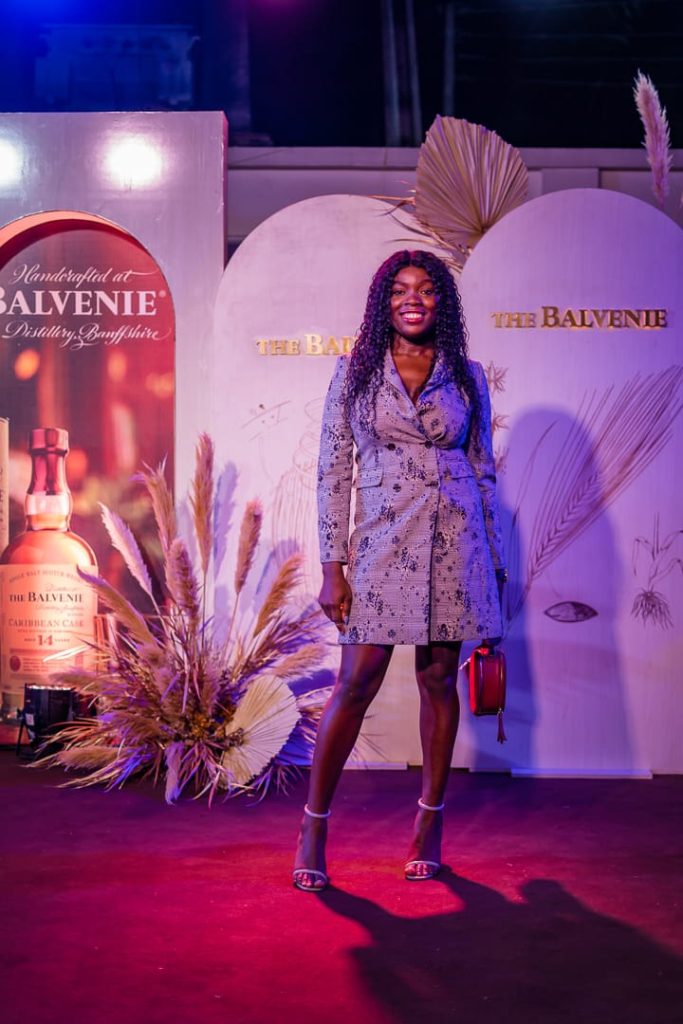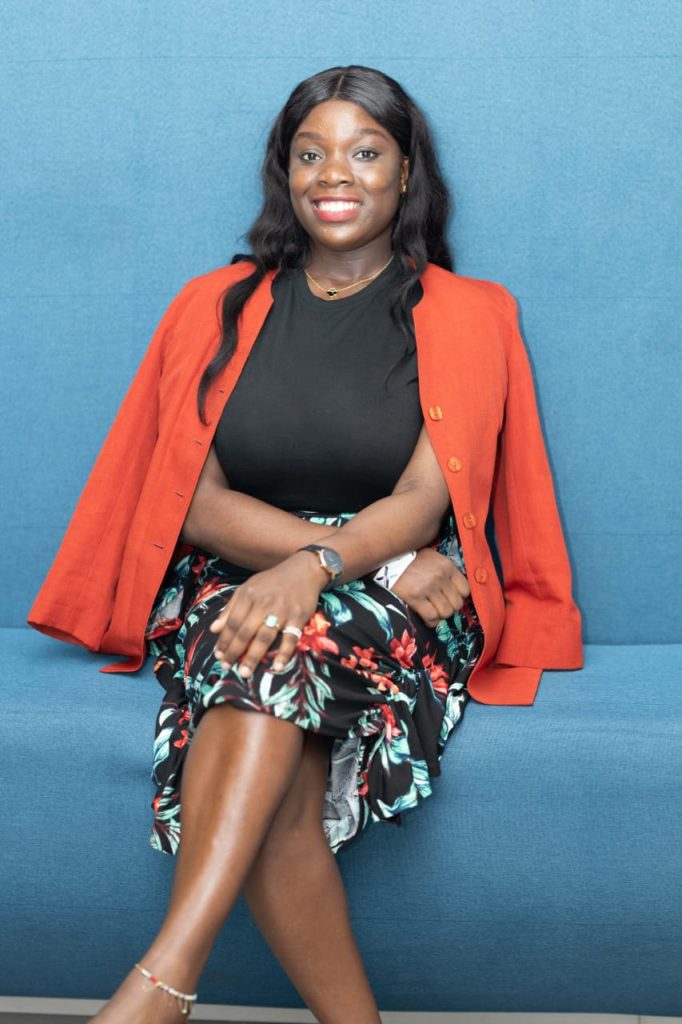Nigeria’s legacy corporate institutions have a lot of negative stereotypes that have come to define them and one of the most common is that these companies have no interest in enabling younger talent to join their ranks. Jennifer Ugboh is proof that this couldn’t be further from the truth. She has a thriving career in one of the country’s most respected legacy institutions and is helping them expand into a modernist, digital 21st Century world.
We were delighted to talk to her at #MCNWorklife, about the time she worked at an all-woman communication agency and dealt with patriarchal clients, her work now at a legacy financial institution and her perspectives on why she chose corporate while others are increasingly choosing to pitch them their tents with startups and remote work.
Hi Jennifer, thank you for agreeing to be part of #MCNWorkLIfe. We’d like to get to know you a bit better, who is Jennifer?
My name is Jennifer Ugboh, I am a Communications Specialist currently managing External Relations at one of Nigeria’s long standing financial institutions. I am driven by the need to tell brand stories and deliver impact-driven campaigns tailored towards development and empowerment. I have worked in various PR and communication functions that cut across external and internal communication, media relations, crisis communication, community management, content creation, influencer engagement and partnership.
I host a podcast called Lets Just Talk Podcast – a show that highlights and tackles adulting issues and all the woes of being young and on the come-up. I am an unrepentant content junkie, movie lover and bibliophile.
What did you want to be growing up?
As a kid, I had dreams of becoming a doctor, I don’t know why I thought that was going to work because I get squeamish around blood, and I was always the girl in the lab with a novel tucked behind the big textbooks. I’ve gone from wanting to be a doctor to wanting to be a book editor, a lifestyle magazine editor to wanting to be a TV writer. So many dreams and not enough lives to live them all.
What career path are you in now?
I currently work in Media and Communication which is surreal because this role allows me to draw on all the things I love, like storytelling, film, and books as a pathway for creative expression. I guess it’s no coincidence.
How long have you been working as a media and communication expert?
I’ve done this for 7 years now. I have built my expertise working with different organisations across multiple industries including financial services and fintech start-ups, FMCGs, beauty, beverages, health, non-profit corporations and entertainment.
Did you study media and communication in university?
Not really, I have a first degree in Zoology, which is completely way out of what I’m currently doing but I have always loved to write and while in school, I joined the publication team of my campus fellowship. I eventually became the publication unit director in my third year and that experience cemented my love for writing and communication in general.
After school, I knew I wanted to build a career based on my passion and skills and without zero media experience, I applied as a writer to Today’s Woman Magazine. I remember being so nervous during the interview with the editor in chief, but I guess she saw something in me because I got the job. That role got my foot in the door and the rest like they say is history.
What’s a typical day in your work week like?
My day-to-day routine varies depending on the project I’m working on. Typically, I wake up at 5:30am, leave the house at 6:30am and get to work before 8:00am. The workday often begins with checking emails, reviewing my calendar, and prioritizing and delegating tasks for the day. In between, I do a bit of media monitoring, media relations and outreach, stakeholder meetings, strategy, and campaign development. I try to end my day at 5:00 – 6:00pm and I’m usually back home at 9pm ready to do it all over again the next day.
Is there anything that really thrills you about working as a media and comm expert?
I love that no two days are the same. Today, I could be writing the script for a documentary or a speech and the next day I’m working on a campaign strategy to promote a new product and another day, I’m in a remote city interviewing a customer for promotional content. This dynamism makes for an exciting day-to-day which can be very fulfilling.
What is the thing least appealing aspect of your job]?
The admin stuff, oh and the waiting. Waiting to hear back from your stakeholders, waiting to confirm a pitch from journalists, waiting for approval from management. There’s a lot of waiting which can slow things down sometimes.
Are there any specific challenges women who work in corporate comms have to overcome while trying to do their work?
This is not so much a gender issue, as it is personal. One thing I find challenging is navigating the line between being an introvert and working in an industry that thrives on hypervisibility. In a field that thrives on networking, public speaking, and being constantly out there, there is an unspoken pressure to constantly be outgoing, charismatic, and highly visible, which can be particularly challenging for someone like me who ENJOYS solitude and generally prefers a quieter, more introspective approach to life/work. I think it’s crucial to recognize and embrace the unique strengths that introverts bring to the table, such as their thoughtful insights, strong listening skills, and ability to provide well-considered solutions.
Is there any way being a woman in your field gives you an advantage over your co-workers?
I wouldn’t say being a woman in comms gives you an advantage, but it does help with things like relationship building, empathy and emotional intelligence which are key ingredients for building a well-rounded communication strategy.
However, it is important to note that while these can be considered advantages, women still face a lot of bias in the industry. There’s the big issue of executives doubting your competence and people chalking down your job to just fluff. I once worked in an all-female agency, and we lost a pitch because the client didn’t think we could handle the account. There was no problem with the strategy we proposed, he just didn’t trust that an all-female team could do the work. It was his loss, but I think more organisations can benefit from having female communication specialists/PR executives. Having women in these roles allows for a wider range of perspectives to be considered, which ultimately leads to more inclusive and comprehensive strategies and campaigns that can resonate with different audiences.
Do you believe in work buddies?
Absolutely! Work buddies/work spouses, totally recommend. I always say we are at work to work, but what makes work worthwhile is if you work with people you like. Building great connections with colleagues can create a sense of camaraderie, teamwork, and a supportive work environment ultimately leading to better collaboration which can produce positive outcomes for organizational success. Throughout my career, I have been quite fortunate to work with amazing people that I actually like, and I would say It’s great to have people to share your thoughts, concerns, and successes with. This can make for a truly fulfilling and satisfying work experience.
Can you give us a tip you swear by for successfully managing a work/life balance?
In the past, I used to be terrible at managing a work/life balance because my job requires that I stay constantly plugged in. I still struggle with this but as I’ve evolved, I have learnt to establish clear boundaries and prioritize self-care. My go-to tip is to disconnect from technology and work-related devices after work, especially on the weekends. I try to do minimal social media on the weekends, no checking or responding to emails except it is absolutely important. I unwind by sleeping in, deep cleaning my apartment and catching up on my favourite shows or books.
 Do you have any advice for younger women who want to do what you do?
Do you have any advice for younger women who want to do what you do?
It’s simple; if you want it, have the courage to go for it. Build a diverse skill-set and develop strong communication skills. Effective communication is at the core of your profession, so hone your writing and speaking skills. You should also focus on building meaningful relationships, this is your biggest currency in the industry. Lastly, find what drives and inspires you within the field of PR and communication. Whether it’s advocating for a cause, telling compelling stories, or influencing public opinion, this will keep you motivated and fulfilled throughout your professional journey.



 Do you have any advice for younger women who want to do what you do?
Do you have any advice for younger women who want to do what you do?
🥰🥰🥰🥺✅
Interesting read! Keep thriving Jhene! 👏 👏 👏